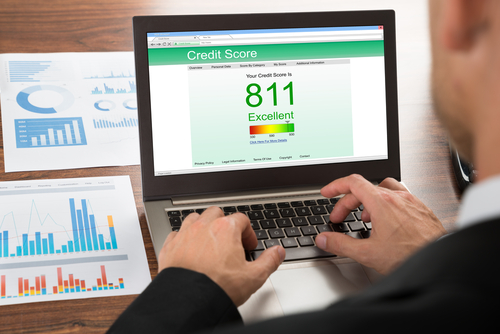It’s become harder to qualify for a home loan in recent years. Therefore, it is important to understand what banks look for in an applicant. Getting a mortgage typically requires a down payment and consistent employment, and you have to meet the lender’s credit requirements. However, some applicants never check their credit file before meeting with a mortgage lender.
If you’re thinking about a home purchase, here are four reasons to check your credit beforehand.
1. Your credit score could be lower than you realize
Some applicants assume their credit is good, so they don’t check their score or reports prior to applying for a mortgage. But even if you pay your bills on time and have a seemingly good relationship with your creditors, your credit score may not be high enough to qualify for the most favorable interest rates.
There is no way to know where you stand credit-wise until you order your credit report and credit score. You can qualify for a conventional mortgage with a credit score as low as 620 and an FHA mortgage with a credit score as low as 500 to 580. But if you want an excellent interest rate, you need a credit score in the upper 700 or 800 range.
Checking your credit ahead of applying for a mortgage also gives an idea of the loan programs you qualify for; and if your credit needs improving, you can take steps to raise your score. Paying down debt and paying your bills on time helps fix a low credit score.
2. Your creditors may report erroneous information
Checking your credit helps you identify mistakes on your credit file. Creditors may update your credit report with erroneous information that damages your credit score, such as higher account balances or late payments. Mortgage lenders put a lot of emphasis on payment history, and having one or two late payments on your report within the past 12-months can hurt your chances of getting approved for a mortgage. Therefore, it’s important to check your report for accuracy, and then contact your creditors to fix any mistakes you find. If your creditor is unwilling to assist, you can file a dispute with the credit bureaus.
3. You might be a victim of identity theft
If you never check your credit history or credit score, you could be a victim of identity theft without realizing it. Identity theft can include someone applying for loans and credit accounts in your name and accumulating debt in your name. This type of theft can damage your credit reputation, to the point where you may not qualify for a mortgage. It doesn’t matter if you are innocent and a victim of fraud, a mortgage lender will not approve your application until the issue has been resolved and derogatory items are deleted from your credit report.
Order your credit report from AnnualCreditReport.com, or request your reports by contacting the three major bureaus (Experian, Equifax and TransUnion). If you’re a victim of identity theft, notify your creditors and the credit bureaus, and then file a police report. You can also report identity theft to the Federal Trade Commission.








